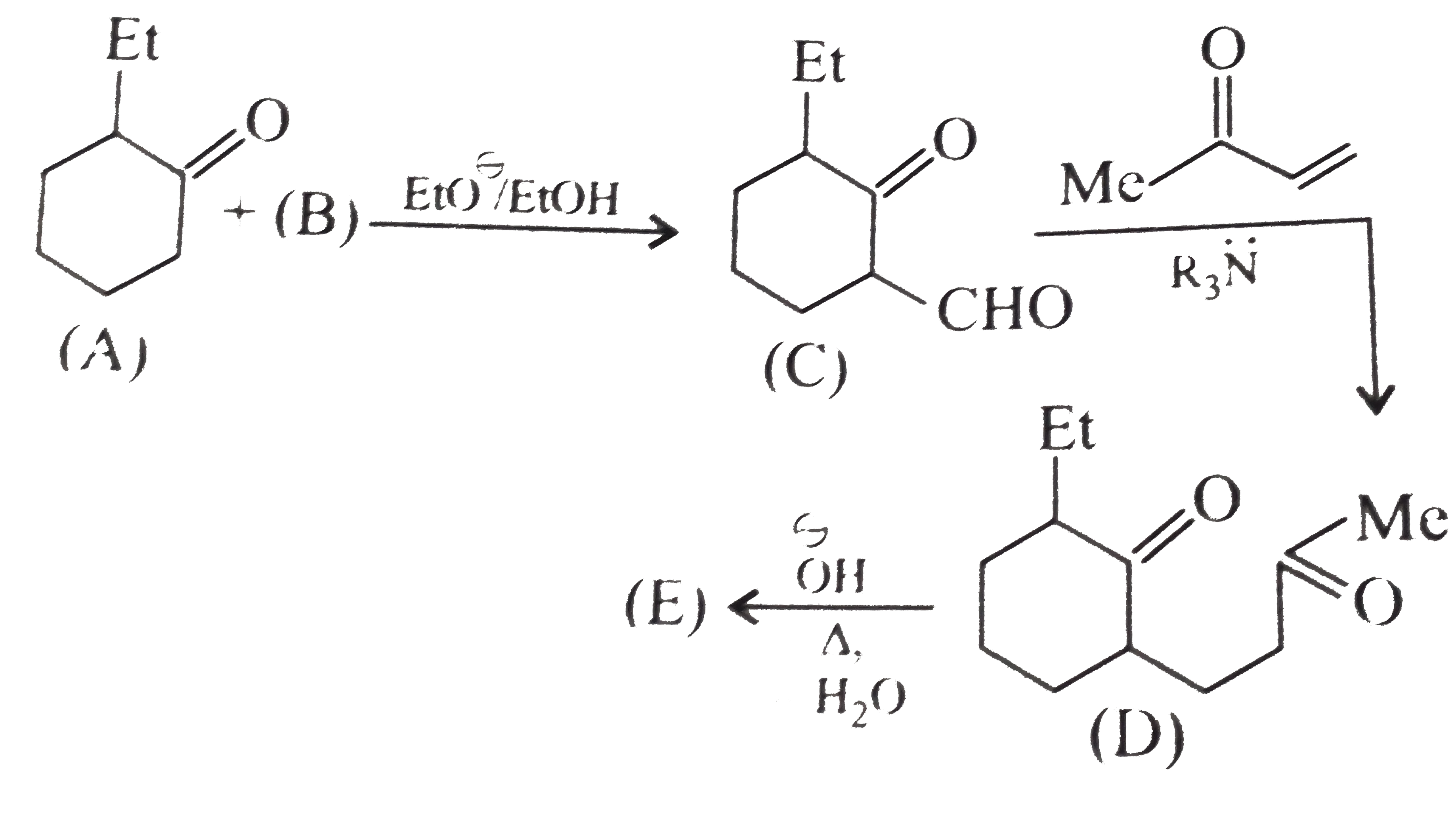Which statement(s) is/are correct.
A
Glucose react with NH2−OH to form oxime
B
Pentaacetate of glucose does not react with NH2−OH
C
KI can reduce glucose to n-Hexane
D
Glucose reacts with HCN to form epimeric cyonohydrin.
Video Solution
Text Solution
The correct Answer is:A, B, C, D

(A)

|
Updated on:21/07/2023
Topper's Solved these Questions
- BOOK - BANSALCHAPTER - GENERAL ORGANIC CHEMISTRYEXERCISE - Exercise 39videos
GENERAL ORGANIC CHEMISTRY
- BOOK - BANSALCHAPTER - GENERAL ORGANIC CHEMISTRYEXERCISE - Exercise 128videos
GENERAL ORGANIC CHEMISTRY
- BOOK - BANSALCHAPTER - ATOMIC STRUCTUREEXERCISE - Exercise.335videos
ATOMIC STRUCTURE
- BOOK - BANSALCHAPTER - HYDROCARBONSEXERCISE - Exercise 312videos
HYDROCARBONS
Similar Questions
Knowledge Check
- Question 1 - Select One or More
Which statements(s) is//are correct:
 Aa.The intermediates I and II can be isolated.Bb.In the intermediates I and II, all the resonance energy has been lost and the activation anergy of this step is much greater than that required for each succeeding step in which the double bond behave like their acylic analogue.Cc.The conditions required for the formation of I and II are more vigorous than those required for the successive steps.Dd.Because to this, it is not possible to stop the reaction proceeding to complete the reduction of benzene to II (cyclohexane), and consequently it is not possible ti isolate the intermediates II and III.
Aa.The intermediates I and II can be isolated.Bb.In the intermediates I and II, all the resonance energy has been lost and the activation anergy of this step is much greater than that required for each succeeding step in which the double bond behave like their acylic analogue.Cc.The conditions required for the formation of I and II are more vigorous than those required for the successive steps.Dd.Because to this, it is not possible to stop the reaction proceeding to complete the reduction of benzene to II (cyclohexane), and consequently it is not possible ti isolate the intermediates II and III. - Question 2 - Select One
Which statements (s) is/are correct about osmotic pressure (P), volume (V) and temperature (T) ?
AP∝1/V if T is constantBP∝T If V is constantCP∝V if T is constantDPV is constant if T is constant - Question 3 - Select One
Which statements(s)is/are correct about sucrose?
A(C1−α)(OH) of glucopyranose is linked with (C2(−β)(OH) of fructofuranose.B(C1−α)(OH) of glucopyranose is linked with (C2−β)(OH) of fructopyranose.CIt reduces Fehling's solution.DIt exhibits mutarotation.
Which of the following statement(s) is/are correct
View SolutionWhich statements (s) is (are) correct for ABx type molecule ? .
View SolutionWhich of the following statement(s) is/are correct?
View SolutionWhich of the following statement(s) is/are correct ?
View SolutionWhich of the following statement(s) is/are correct?
View Solution


